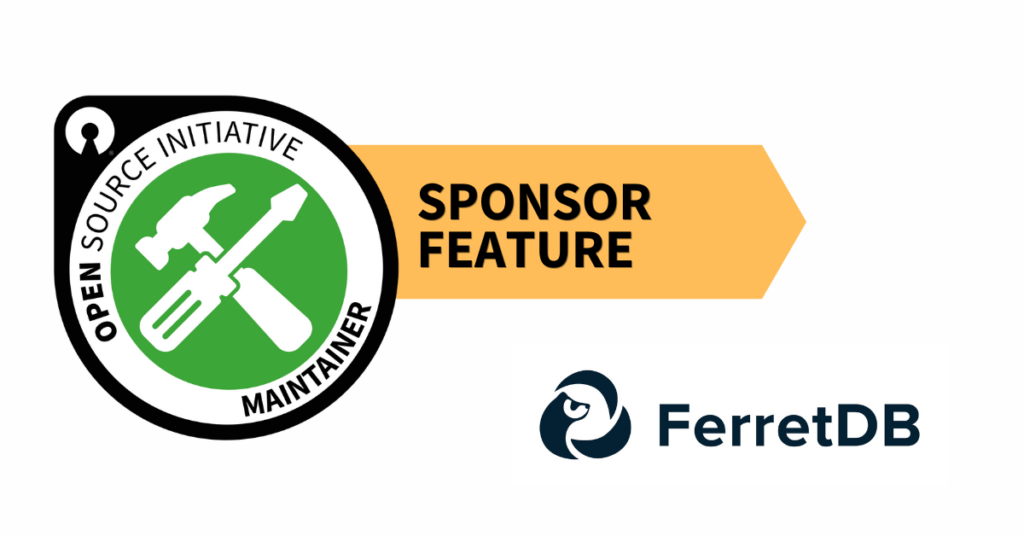Currently there is no Open Source common interface for document databases, but FerretDB is driving forward with a goal to change that. The founders of FerretDB, an Open Source document database using PostgreSQL as the database backend, is working with different stakeholders on developing a standard for document databases, the same way as SQL was created as a standard for relational databases in the 1980s, with the objective of reducing the risk of vendor lock-in for users.
Coming from long backgrounds in Open Source, founders Aleksei Palazhchenko, Peter Zaitsev and Peter Farkas believe that standards and definitions are imperative to the survival of Open Source, which is why FerretDB is a strong supporter of OSI. They also see vendor lock-in as a real danger, one that can result in extremely costly migrations if a user chose to move their data from a proprietary service to an Open Source one. At present, MongoDB is the default choice for document databases, but when it switched from Affero General Public License (AGPL) to Server Side Public License (SSPL) license in 2018, these Open Source veterans felt that the move introduced limits in choice, competition and innovation, and they knew something had to be done about it.
FerretDB was started in 2021 to be an Open Source alternative to MongoDB. The founders support the OSI authority over what is and is not Open Source, and the SSPL license MongoDB moved to is not an OSI-approved license. The SSLP license allows cloud providers to offer MongoDB as a service, but it requires those providers to pay a licensing fee. What may have been designed to protect MongoDB from infrastructure providers who don’t contribute back to the project also limits the user, and can no longer be considered Open Source.
With an allegiance to true Open Source and a commitment to preserving the integrity of Open Source for future generations, FerretDB was established under the OSI-approved Apache 2.0 license. It was built on top of PostgreSQL, an existing Open Source database that has a strong and active community. This choice was made because starting a new database from the ground up could take ten years to build and add the required depth of functionality, not to mention the trust of users.
Additionally, the Document Database Community was created with the aim of getting all document database vendors, experts and users together. The community holds monthly webinars to foster communication and form connections among stakeholders.
“We think that open source is in danger as more and more companies are trying to redefine Open Source, with licenses such as BSL or SSPL,” said Farkas. “We sponsor OSI because we believe that OSI is the point of reference when it comes to the definition of Open Source, and it should stay this way. OSI’s approach is helping to move the industry forward.”
FerretDB is a VC-funded company, so its founders are interested in making a profit through service, support, and as-a-service options But, the product itself will always be free. FerretDB released FerretDB 1.0 earlier this year, the first version which is capable of running MongoDB workloads and supporting MongoDB tools. Features continue to be added based on the requests of the community. FerretDB-as-a-service is available on the European infrastructure provider, Scaleway, as well as on Civo with plans for enterprise-level support in the future.
If you would like to participate in the development of document database standards, you can share your input at www.documentdatabase.org.
The post <span class=’p-name’>Open Source shaking up document databases, setting new standards</span> appeared first on Voices of Open Source.

Source: opensource.org
